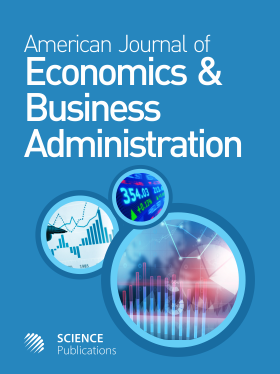Multilateral Environmental Agreements versus World Trade Organization System: A Comprehensive Study
- 1 Hidayatullah National Law University, India
Abstract
Problem statement: Most environmental problems have a transboundary nature and often global in scope, and can only be addressed effectively through international co-operation. Multilateral Environmental Agreement (MEA) is the main method available under the international law for countries to work together on different global environmental issues. This research was needed to observe how MEAs as agreements between states take the form of "soft law" which the parties will respect when considering actions which affect a particular environmental issue, or "hard law" which specify legally binding actions to be taken towards global environmental objectives. Approach: The main context with which the study contracted is the status, development, effectiveness, necessity and the impact of the MEA trade measures. The study discussed the inter-relationship between the MEA trade measures and the WTO rules and the possible grounds of conflict. The WTO agreements themselves contain measures allowing for environmental considerations. The agreements establish that the trade should be conducted while allowing for the optimal use of the world's resources in accordance with the objective of sustainable development, seeking both to protect and preserve the environment and to enhance the means for doing so. Results: The study would further discuss the problems related to the increased likelihood of actual conflict between the two systems and the Dispute Settlement Body (DSB) of the WTO. The study would discuss the scope of the core Environmental Conventions and related International Agreements taken like the Kyoto Protocol, Montreal Protocol, Basel Convention, CITES, ICCAT and the trade resolutions taken by different states under them, domestically and internationally to regulate and monitor trade practices accordingly. Conclusion: The study in the later part would give some suggestions as to why ICJ appears to be the appropriate legal system for the purpose of settling disputes resulting from clash between MEAs and WTO rules followed by a conclusion based on a deep study of the relationship between the MEA trade system and the WTO rules.
DOI: https://doi.org/10.3844/ajebasp.2009.219.224

- 4,392 Views
- 3,723 Downloads
- 0 Citations
Download
Keywords
- Transboundary environmental problems
- global environmental issues
- optimal use of resources
- sustainable development
- regulation of trade practices
- core environmental conventions
